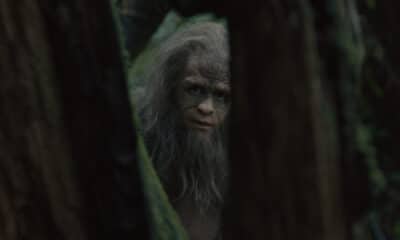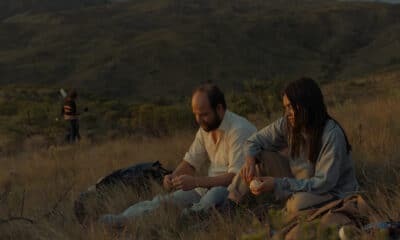
On May 2nd, Daniel LaRusso (Ralph Macchio) and Johnny Lawrence (William Zabka) will come face-to-face once again in the YouTube Red series Cobra Kai, a continuation of The Karate Kid series that started 34 years ago. For any fan of the crane-kicking original franchise, this new series is a cause for giddy excitement of any fan of the franchise. Between 1984 and 1994, The Karate Kid franchise followed Daniel-san and his sensei Mr. Miyagi (Pat Morita) through numerous karate tournaments, with the fourth part in ’94 following Miyagi with a new student. With Cobra Kai on the horizon, now seems as good a time as any to re-visit the narrative of Daniel and Miyagi, leaving aside the kung-fu centric remake with Jaden Smith and Jackie Chan. So, let’s kick off with there it all started: sunny California, 1984.
Daniel LaRusso has moved to California from Newark, New Jersey so that his mother can explore a new career opportunity. Of course, being the new kid from another state has its problems, and Daniel finds himself the target of a group of bullies made up of students from the Cobra Kai karate dojo, whose sensei enforces an aggressive approach to the martial art (‘Strike first, strike hard, no mercy’). Daniel soon finds out that that the handyman in his apartment complex, Mr. Miyagi, is very skilled in karate and gets him to agree to teach him to face the Cobra Kai at an upcoming karate tournament.

It is easy to look at The Karate Kid and pin down its success to the fact that it feels a lot like a ‘Rocky for teens’, what with its underdog storyline, a score by Bill Conti, 80’s-tastic training montages, and of course it is directed by John G. Avildsen, the man behind Rocky and later Rocky V. The film certainly seems to embrace such a comparison, sticking to the formula of sports movies all the while mixing it with the trademarks of an 80’s coming-of-age teen movie, what with Elisabeth Shue playing a love interest and Bannarama on the soundtrack. But there is enough within the first Karate Kid that allows it to stand as an iconic piece of Hollywood cheese in its own right.
A thing that always strikes me when watching The Karate Kid is just how sincere it is. It may have montages set to the likes of Joe Esposito’s ‘You’re the Best Around’ (quite possibly the best montage song ever committed to 80’s cinema), but it is film that also really cares about its characters, prioritising moments of character-driven dialogue over action throughout most of its runtime. The relationships forged feel genuine and easy-going, as well as enlightening, be it Daniel’s relationship with his mother to the sweet burgeoning romance with Shue’s Ali. But the centrepiece is, of course, the relationship between student and teacher. Macchio and Morita have such a relaxed chemistry as Daniel takes on lessons of both the karate and life-kind. Be it the moment where Daniel realises what all the chores have been in aid of in regards to his training, or the moment when Miyagi opens up about his past one drunken night, they are a constantly engaging duo, and it’s not hard to see why a franchise was forged on the strength of their relationship and on-screen chemistry.

The Karate Kid, much more so than its sequels, is a film that means a lot to people, and there are several reasons for that. One is, of course, it has that 80’s aesthetic that makes it an instant nostalgia hit whenever you catch sight of it. It popularised karate in a way that got kids all around the world interested in learning not just self-defence, but hoping they’d find a wise enlightening mentor like Miyagi. It is also a film that resonates with a lot of people who may have been bullied at school and felt empowered by a story which sees a relatable kid take on his aggressors in an awesome fashion, leading to a final act that is the epitome of punch-the-air climaxes.
The Karate Kid is certainly one of those films that doesn’t seem to make that much of an impression on individuals who didn’t watch it growing up. It certainly speaks to you more on an adolescent, as a lot of the problems stem from teenage anxiety. But there’s a lot here to relate to, from paranoia about class systems, bullying and its considerate approach to the use of violence. It is one movie from childhood that delivers well-intentioned messages, all the while also delivering on an exciting karate tournament with endlessly quotable lines, form Miyagi’s ‘Wax on, wax off’ to Cobra Kai’s tournament jibes (‘Fetch him a body bag!’). It is as entertaining experience to me as it was when I first saw it at the age of 12, a strong piece of evidence demonstrating the power of nostalgia, which seems very in fashion at the moment if you hadn’t noticed already. That it carries itself in such a sincere fashion does make it easy to mock, but there is no denying that it has a charm that other films of its kind struggle to match.
Next week I’ll be diving back in to the Okinawa based The Karate Kid: Part 2, a film I am not as familiar with as the first, so it is likely to be a different experience revisiting that particular chapter, as I honestly can’t remember if I like it or not. Time will tell, and hope to see you back next week for more crane-kicking adventures with Daniel-San and Miyagi!

Latest Posts
-


Apple TV
/ 17 hours agoTrailer: André Holland leads Apple’s new limited series, ‘The Big Cigar’
Apple TV+ has released the full trailer for The Big Cigar, a new, six-episode...
By Paul Heath -


Film News
/ 18 hours agoUK trailer, poster and release date for Sundance smash ‘Sasquatch Sunset’
Premiering in the UK at the Sundance London event in June is the brilliant...
By Paul Heath -


Disney+
/ 19 hours agoNew trailer for ‘Becoming Karl Lagerfeld’ with Daniel Brühl
A trailer has landed for the June-released Becoming Karl Lagerfeld, the Disney+/ Hulu series...
By Paul Heath -


Film News
/ 20 hours agoUK release date revealed for Cannes film ‘The Delinquents’
MUBI has announced the release date for The Delinquents, the Cannes Un Certain Regard-premiering...
By Paul Heath















